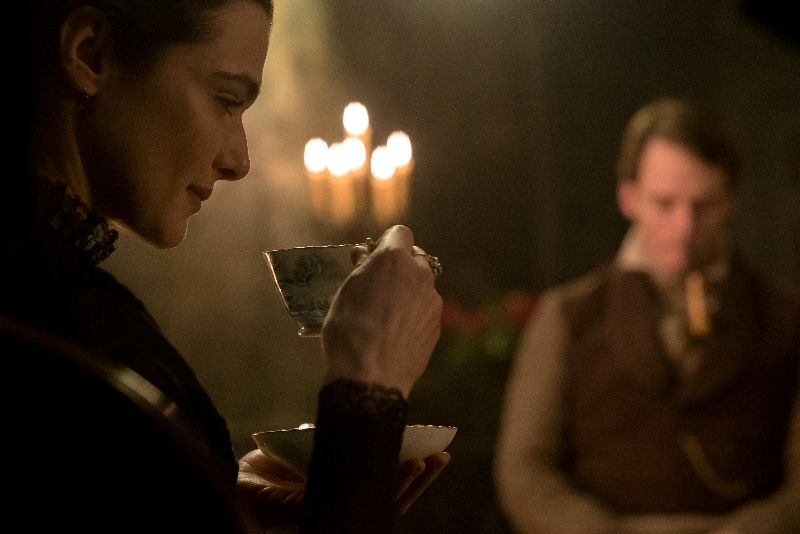Review: My Cousin Rachel
- Aug 16, 2017
- 3 min read

Did she? Didn't she? Is she? Isn't she? Ambiguity and infatuation power the second film adaptation of Daphne du Maurier's 1951 novel My Cousin Rachel, previously brought onscreen in 1952 by Henry Koster with Richard Burton and Olivia de Havilland as the stricken hero and the enigmatic object of his obsession.
Taking over from the brooding Burton is Sam Claflin as Philip Ashley, orphaned as a child but raised by his cousin Ambrose, whom he regards as his father. When Philip returns from university, Ambrose retires to Italy where the sun will be more beneficial to his failing health than the moors of Cornwall. Through their correspondence, Philip learns of Rachel, a widow and cousin, whom Ambrose extols as "good, radiant and the kindest companion." Ambrose takes Rachel as his wife, though their happiness seems short-lived as Ambrose's letters take a darker turn as he begins to suspect that Rachel is poisoning him. By the time Philip arrives at the Italian villa, Ambrose is dead, Rachel is nowhere to be found and Philip, orphaned all over again, vows revenge on the woman he believes murdered his guardian: "Whatever it cost him in pain and suffering before he died, I will return in full measure upon the woman that caused it."
"What possible motive could she have with nothing to gain from his death?" counters Nick Kendall (Iain Glen), Philip's godfather whom daughter Louise (Holliday Grainger) clearly harbours unrequited affection for Philip. Indeed, there would seem no motivation for foul play on Rachel's part since Ambrose's will made no provision for a wife; Philip is to inherit the entire estate on his upcoming twenty-fifth birthday. Perhaps Ambrose's paranoia regarding Rachel was a symptom of the brain tumour that reports state was the cause of his death. Philip refuses to believe it and, when he learns that Rachel is arriving on the estate, he prepares himself to confront her.
Except Philip finds himself instantly disarmed by her beauty and her seemingly genuine grief over Ambrose's death. Having had so little experience with the opposite sex, he is immediately bewitched, bothered and bewildered and he turns from avenger to protector, determined to ensure that she have a proper inheritance even if it means risking his own.
As the titular character, Rachel Weisz is nothing less than mesmerising. Rachel may be viewed as a conniving temptress, but is she that? Or merely a woman who uses her intelligence and femininity to make her way through a male-dominated and misogynistic world? One never really knows and that uncertainty is what renders Weisz's portrayal so captivating. Her worldliness contrasts nicely with Claflin's boyishness. Claflin embodies Philip's naivete and downward spiral with conviction.
That said, the film never wholly agitates as it should. Part of the reason is that director Roger Michell, who also adapted du Maurier's novel, never truly lets the film give in to its more gothic elements. He does well to shroud the film in darkness, he creates a film blanc where dark desires cobweb its victims in the clear light of day. Yet the Oedipal undercurrents are only superficially explored. Rachel and Philip are related by both blood and marriage and she also serves as a mother figure to him, which he subconsciously reinforces by gifting her with the necklace that his mother wore on her wedding day. Philip's carnal urges and the ensuing emotional battle may have been far more impactful had Michell brought more focus on the incestuous nature of their relationship. Nevertheless, the film, much like its heroine, weaves a potent spell.
My Cousin Rachel
Directed by: Roger Michell
Written by: Roger Michell; adapted from the novel by Daphne du Maurier
Starring: Rachel Weisz, Sam Claflin, Iain Glen, Holliday Grainger, Andrew Knott, Poppy Lee Friar, Katherine Pearce, Simon Russell Beale

Comments